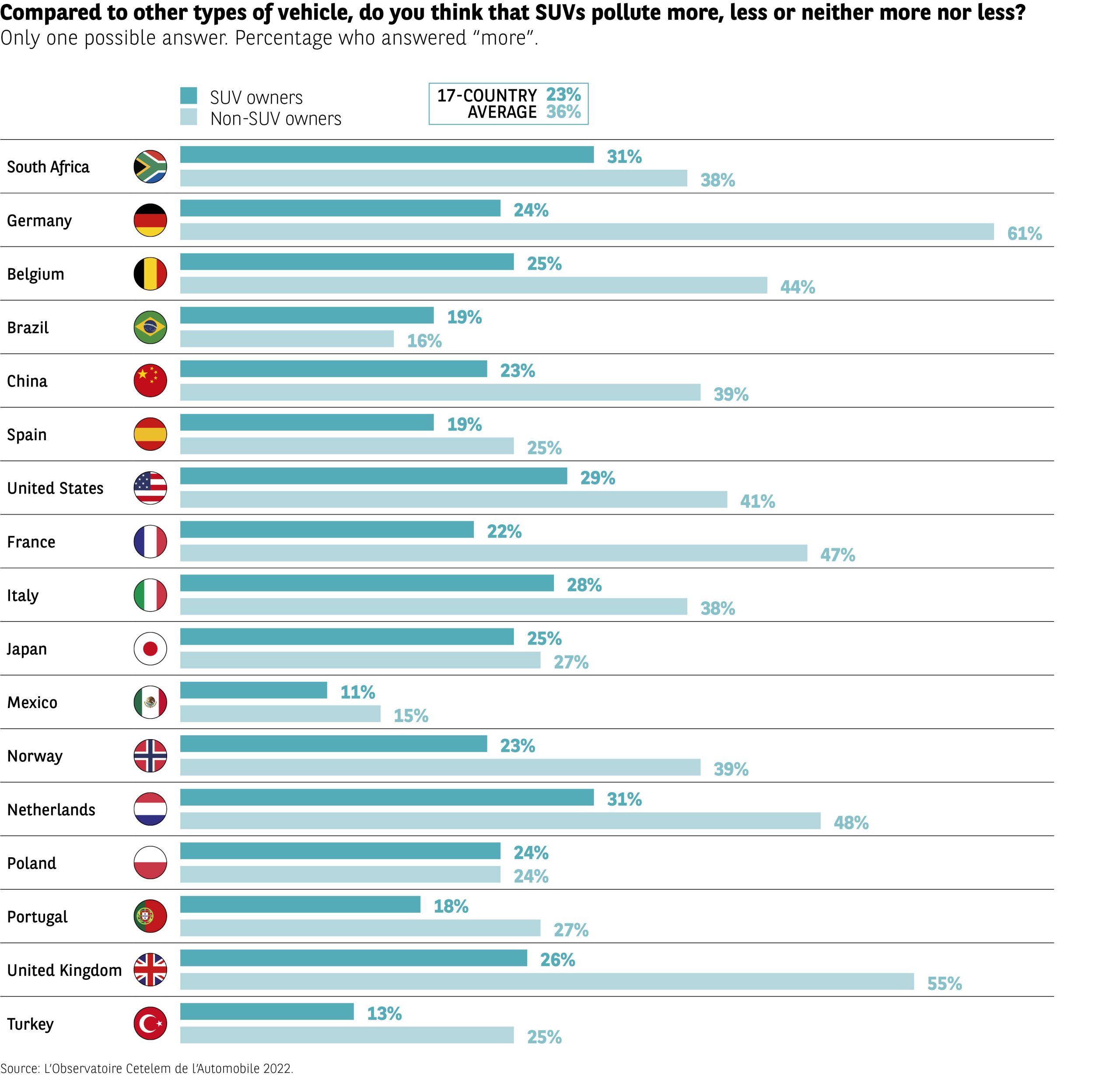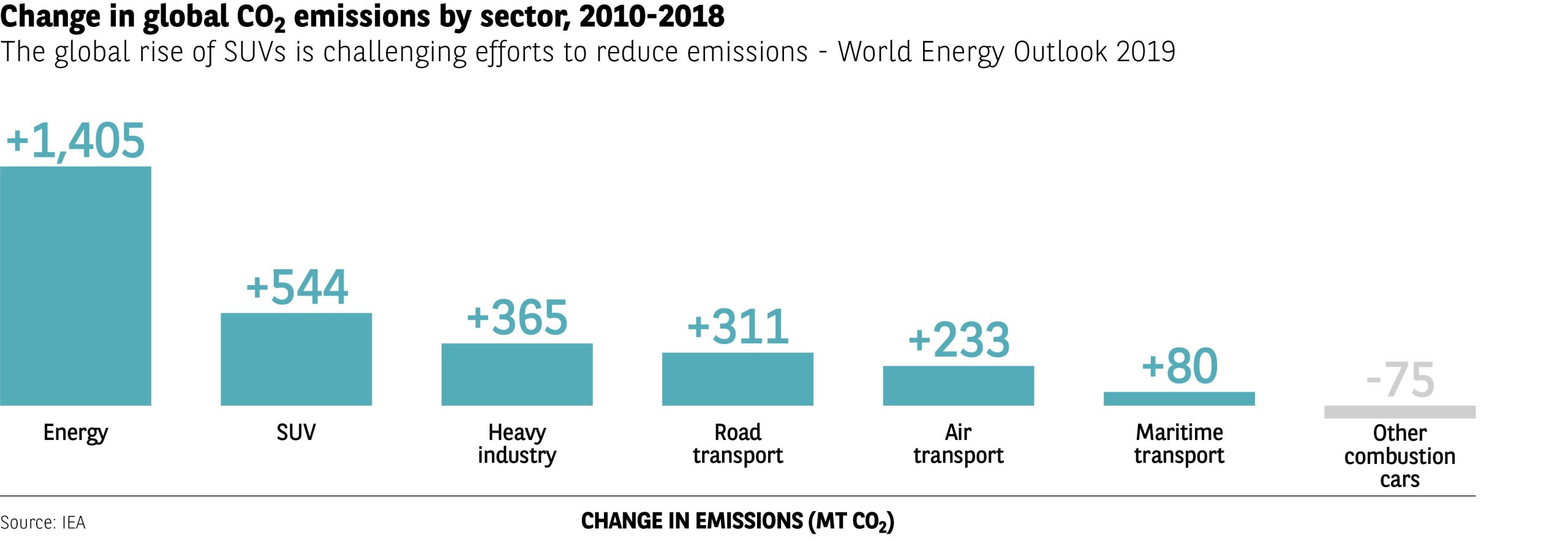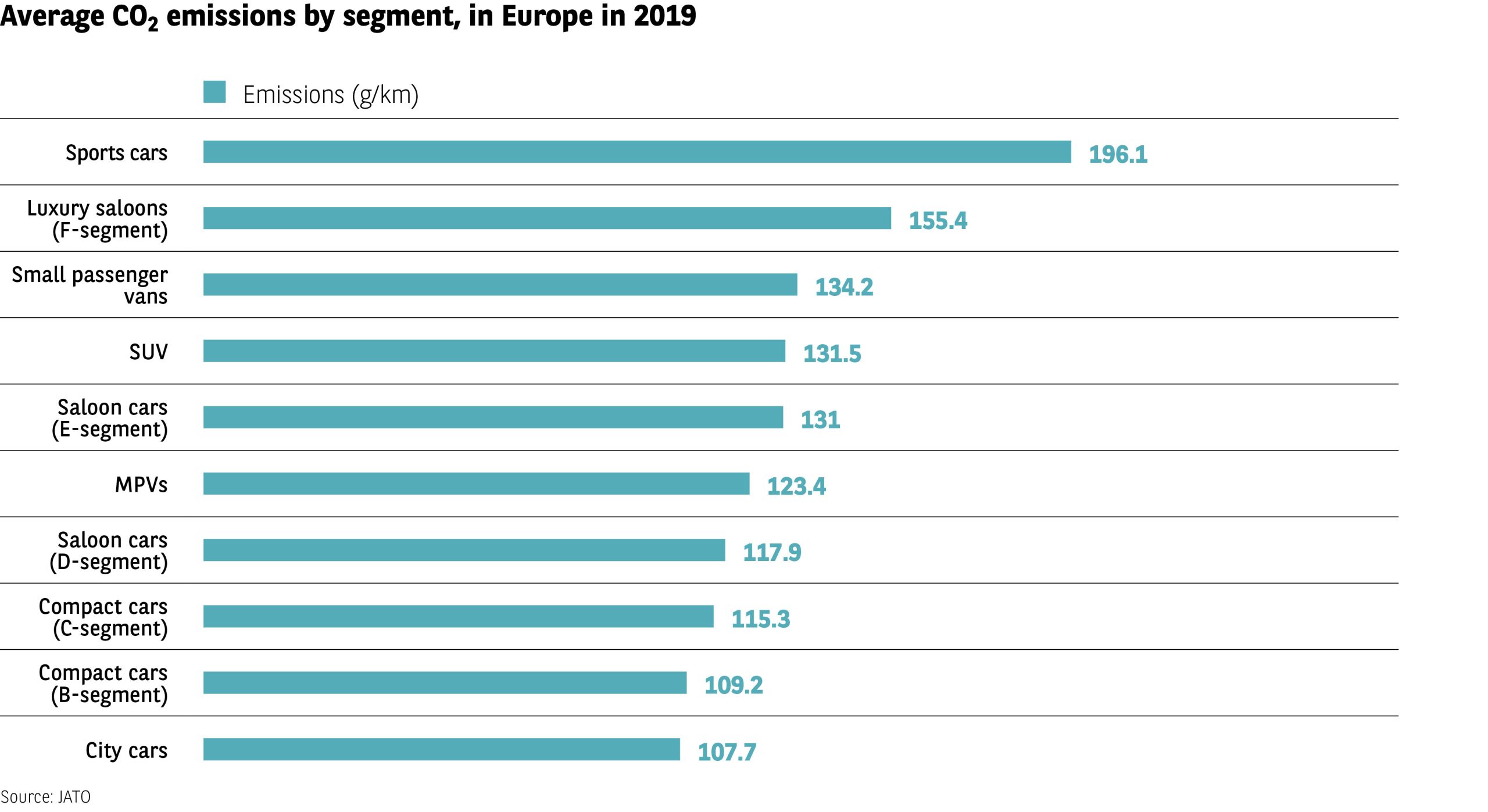A target for widespread criticism


Vehicles that are viewed as polluting, but not always
One issue that seems to stick to SUVs like glue is that of pollution. And again on this topic, the differences between owners and non-owners of SUVs are marked. 36% of non-owners think that SUVs pollute more than any other type of vehicle, while only 23% of SUV owners concur with this suggestion (Fig 7). And opinions become more polarised depending on where people live. At the front of the queue of those who criticise SUVs for their environmental impact are non-owners from Germany, the UK, the Netherlands and France, while those from emerging countries once again put forward a somewhat different opinion.
SUV owners also express diverging points of view, although the same geographical divisions are not apparent. Dutch and South African SUV owners are the most critical (31%), while the Mexicans and Turks are the least likely to voice such an opinion (11% and 13%).
Fig 7 – Perceived pollution level of SUVs compared with other vehicle types
Download this infographic for your presentations The infographic displays results from 17 countries on whether respondents believe an SUV pollutes more than other types of vehicles. Two respondent groups are compared:
– SUV owners (dark teal bars)
– Non-SUV owners (light teal bars)
On the right, the 17-country average is given:
– 23% of SUV owners think SUVs pollute more
– 36% of non-owners think SUVs pollute more
Country results:
South Africa: 31% / 38%
Germany: 24% / 61%
Belgium: 25% / 44%
Brazil: 19% / 16%
China: 23% / 39%
Spain: 19% / 25%
USA: 29% / 41%
France: 22% / 47%
Italy: 28% / 38%
Japan: 25% / 27%
Mexico: 11% / 15%
Norway: 23% / 39%
Netherlands: 31% / 48%
Poland: 24% / 24%
Portugal: 18% / 27%
UK: 26% / 55%
Turkey: 13% / 25%
Non-SUV owners are more likely to consider SUVs as more polluting.
The infographic displays results from 17 countries on whether respondents believe an SUV pollutes more than other types of vehicles. Two respondent groups are compared:
– SUV owners (dark teal bars)
– Non-SUV owners (light teal bars)
On the right, the 17-country average is given:
– 23% of SUV owners think SUVs pollute more
– 36% of non-owners think SUVs pollute more
Country results:
South Africa: 31% / 38%
Germany: 24% / 61%
Belgium: 25% / 44%
Brazil: 19% / 16%
China: 23% / 39%
Spain: 19% / 25%
USA: 29% / 41%
France: 22% / 47%
Italy: 28% / 38%
Japan: 25% / 27%
Mexico: 11% / 15%
Norway: 23% / 39%
Netherlands: 31% / 48%
Poland: 24% / 24%
Portugal: 18% / 27%
UK: 26% / 55%
Turkey: 13% / 25%
Non-SUV owners are more likely to consider SUVs as more polluting.
A vehicle that attracts criticism from society
The environmental question is by far the thickest dividing line between the pro- and anti-SUV factions. Public debate around SUVs has generated constant and regular criticism of these vehicles. According to an October 2019 study by the International Energy Agency, SUVs have been the second largest contributor to the rise in global CO2 emissions since 2010, behind electricity generation, but ahead of heavy industry, road transport and aviation. A study by the World Wildlife Fund (WWF) reached the same conclusion. However, this result must be qualified by considering the different types of SUV. The impact of American SUVs, which are heavier, larger, more powerful and even less aerodynamic than their European counterparts, is much greater. It is also important to note that the increase in SUV sales in some countries, including France, has gone hand in hand with a decline in sales of diesel vehicles. The increasing “electrification” of vehicle ranges and the stiffening of environmental regulations have contributed to positive trends in terms of energy usage.
But this is not the only issue that makes the topic of SUVs a source of discord. Their height and overall size often cause problems in towns, where their presence continues to grow. Road lanes and car parks are sometimes too small for SUVs to be able to use them without difficulty.
Another cause for criticism is the increased risk of accidents.An AXA study conducted in Switzerland in August 2020 revealed that the larger an SUV, the higher the risk of it being involved in an accident. In the United States, the Governors Highway Safety Association pointed out in 2018 that the significant rise in the number of light trucks in circulation was causing an increase in the number of pedestrians killed in road accidents.
Fig 8 – Global CO₂ emissions trends by energy sector
Download this infographic for your presentations The infographic presents the change in global CO₂ emissions between 2010 and 2018 across major sectors. Values represent variations in million tonnes of CO₂ (MT CO₂).
Data shown:
Energy: +1405 MT CO₂
SUVs: +544 MT CO₂
Heavy industry: +365 MT CO₂
Road transport: +311 MT CO₂
Air transport: +233 MT CO₂
Maritime transport: +80 MT CO₂
Other combustion vehicles: −75 MT CO₂
Main insight: Energy remains by far the largest contributor to rising emissions. SUVs are the second-highest source of emission growth among the sectors shown, while emissions from other combustion cars decrease.
Source: IEA.
The infographic presents the change in global CO₂ emissions between 2010 and 2018 across major sectors. Values represent variations in million tonnes of CO₂ (MT CO₂).
Data shown:
Energy: +1405 MT CO₂
SUVs: +544 MT CO₂
Heavy industry: +365 MT CO₂
Road transport: +311 MT CO₂
Air transport: +233 MT CO₂
Maritime transport: +80 MT CO₂
Other combustion vehicles: −75 MT CO₂
Main insight: Energy remains by far the largest contributor to rising emissions. SUVs are the second-highest source of emission growth among the sectors shown, while emissions from other combustion cars decrease.
Source: IEA.
Fig 9 – Average CO₂ emissions by vehicle segment
Download this infographic for your presentations The infographic displays average CO₂ emissions in grams per kilometre for different vehicle segments in Europe in 2019.
Data shown:
Sports car: 196.1 g/km
Luxury sedan (segment F): 155.4 g/km
Leisure activity vehicle: 134.2 g/km
SUV: 131.5 g/km
Sedan (segment E): 131 g/km
Minivan: 123.4 g/km
Sedan (segment D): 117.9 g/km
Compact car (segment C): 115.3 g/km
Compact car (segment B): 109.2 g/km
City car: 107.7 g/km
Main insight: Sports cars emit the most CO₂, while city cars emit the least. SUVs are in the upper part of the ranking but are not the highest-emitting segment.
Source: JATO.
The infographic displays average CO₂ emissions in grams per kilometre for different vehicle segments in Europe in 2019.
Data shown:
Sports car: 196.1 g/km
Luxury sedan (segment F): 155.4 g/km
Leisure activity vehicle: 134.2 g/km
SUV: 131.5 g/km
Sedan (segment E): 131 g/km
Minivan: 123.4 g/km
Sedan (segment D): 117.9 g/km
Compact car (segment C): 115.3 g/km
Compact car (segment B): 109.2 g/km
City car: 107.7 g/km
Main insight: Sports cars emit the most CO₂, while city cars emit the least. SUVs are in the upper part of the ranking but are not the highest-emitting segment.
Source: JATO.
Key figures

- 45 % of those who believe they have an SUV are mistaken about the type of vehicle they own, compared with just 5% of those who do not
- 8/10 SUV owners appreciate the value for money they offer
- 6/10 SUV owners, outside of Europe, drive their cars primarily in town and in urban areas
- 1/ 2 SUV owners believe that criticism of these vehicles is justified, compared with 2 out of 3 non-owners
- 23% of SUV owners believe they pollute more than other vehicles, compared with 36% of non-owners
- 4/ 10 non-SUV owners believe that those who buy them are just following a trend
